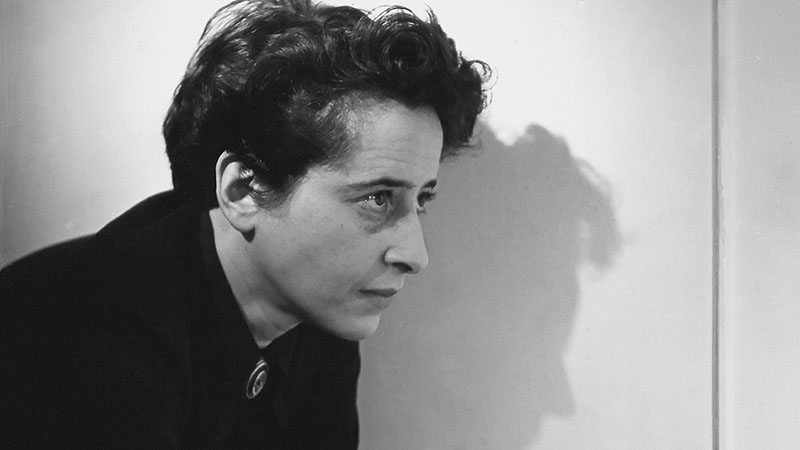The Active Life—Hannah Arendt
Episode #6 of the course Women in philosophy by Will Buckingham
Today, we are going to move on to look at a political philosopher whose work does not directly address issues of gender. Her name is Hannah Arendt, and she is undoubtedly one of the most important women philosophers of the 20th century.
Arendt’s Life and Politics
Much of Arendt’s philosophy is concerned with political life. Her own life was profoundly shaped by the political upheavals of the 20th century. Arendt was born into a Jewish family in Hanover in 1906. She studied with the famous (and controversial) philosopher, Martin Heidegger, and with Heidegger’s former teacher, Edmund Husserl. After being arrested and briefly imprisoned by the Gestapo in 1933, she left Germany for Paris. When Nazi Germany occupied France, she was detained as an “enemy alien” but was released and made her way to New York, where she lived until her death in 1975.
The Problem of Power
Arendt’s work covers a wide range of topics. Her first major book, The Origins of Totalitarianism, explores totalitarianism as a form of government that seeks to control not just political enemies but also the population as a whole. The Human Condition explores the relationship between public and private realms, the question of labor and work, and the nature of human action—in particular, political action. One of her best-known and most controversial books, Eichmann in Jerusalem: A Report on the Banality of Evil, is an account of the 1961 trial of Adolf Eichmann, one of the architects of the Holocaust. On Revolution explores the French and American revolutions. Finally, On Violence investigates the relationship between violence and power.
It is a huge and wide-ranging body of work. But if there is a common factor here, it is in Arendt’s enduring concern with the use and abuse of power.
Freedom and the Active Life
Today, we will focus in on one aspect of Arendt’s work: the idea of the vita activa, or the “active life.” Arendt explores this idea in The Human Condition. For Arendt, activity is one of the fundamental aspects of the human condition. She divides activity into three categories.
The first category is labor, which Arendt distinguishes from work. Labor is the ongoing process of sustaining our existence through the meeting of basic needs. Because it is unending—we need to keep on laboring to keep food on the table—labor is fundamentally unfree. Under capitalism, our lives become defined by labor. Think of how, when you meet a stranger, the first thing you might ask is, “So, what do you do?”, meaning, “What paid labor do you engage in?” When life is defined by labor, it is possible to overlook other possibilities for action.
The second kind of activity is work. This is the production of things that are new within the world, the shaping of the world rather than the meeting of basic needs. Architecture, cake baking, novel writing, the creation of institutions: All these are work. Work is not about the cyclical business of meeting needs, but about human intentions and purposes. It is not just survival in the world, but intervention in the world. It has a greater degree of freedom.
The third kind of activity is action. This corresponds, roughly speaking, to political action in the public sphere. Action, for Arendt, is the exercise of freedom. Born out of our own identity and individuality, it sets into motion new possibilities and new beginnings in the shared political and social world. It is not just sustaining our existence (“labor”) or making something within the pre-ordained possibilities of the world (“work”), but bringing into being new possibilities.
Arendt’s work is still widely read, and her analyses of political power—its abuses and its possibilities—are still relevant today.
Tomorrow, we will be coming up to date by looking at our first contemporary woman philosopher: Martha Nussbaum.
Further learning
Movie: Hannah Arendt, the 2012 movie directed by Margarethe von Trotta, is worth a watch.
Resource: Bard College runs the Hannah Arendt Center for Politics and Humanities. There’s a huge amount of interesting material on their website.
Share with friends

